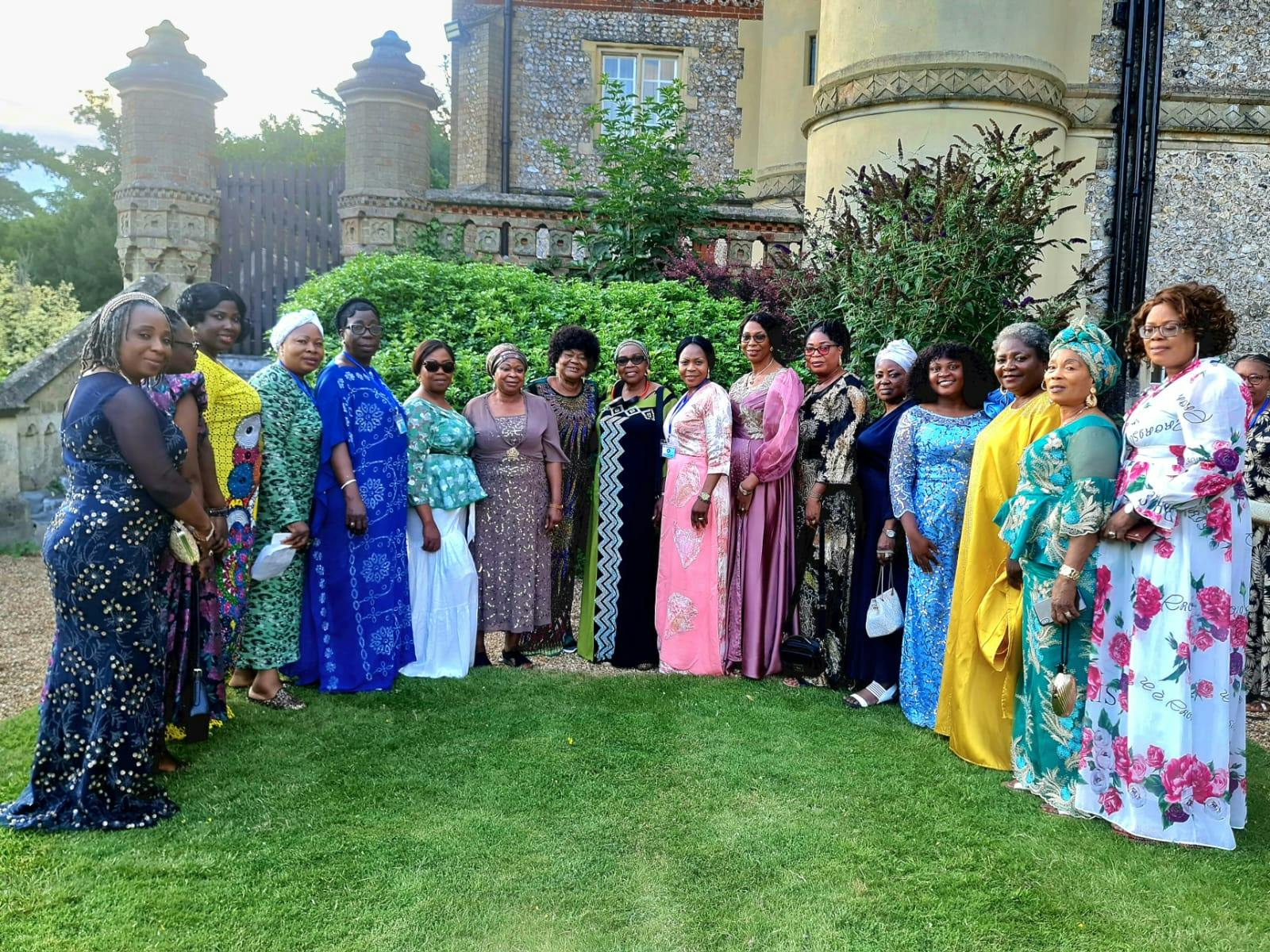
12/6/2024
WHO IS A GOOD WOMAN?
A. SHE IS INDUSTRIOUS
The wise woman builds her house, but the foolish tears it down with her own hands (Proverbs 14:1).
She looks for wool and flax and works with her hands in delight. She is like merchant ships; she brings her food from afar. She rises also while it is still night and gives food to her household and portions to her maidens. She considers a field and buys it; from her earnings she plants a vineyard. She girds herself with strength and makes her arms strong. She senses that her gain is good; her lamp does not go out at night (Proverbs 31:13–18).
She makes linen garments and sells them, and supplies belts to the tradesmen. Strength and dignity are her clothing, and she smiles at the future (Proverbs 31:24–25).
She looks well to the ways of her household, and does not eat the bread of idleness (Proverbs 31:27).
All of these Proverbs share a common theme: they condemn laziness! Certain cultures, including America’s, increasingly embrace a lack of mental and physical exertion. Characteristic slothfulness, by and large, explains the differences between prosperous versus failing nations. Entitlement cultures—socialism cultures more specifically—especially portend personal slothfulness because industriousness is in no way rewarded. More about talk than task, idleness becomes an idol. The end result of socialism is the creation of a climate that disenfranchises and disenables the perspicuous scriptural precept of industriousness. It is, therefore, critically important that the wives of political leaders (if they are not in political leadership themselves) model this attribute of godliness.1
The woman of Proverbs is capable, physically able, business smart, and prosperous. Notice the following passages in contrast to the “Miss/Mrs. Industrious” of Proverbs:
At the same time they also learn to be idle, as they go around from house to house; and not merely idle, but also gossips and busybodies, talking about things not proper to mention (1 Timothy 5:13).
Now note and synthesize the above simple contrast with Titus 2:3–5:
Older women likewise are to be reverent in their behavior, not malicious gossips nor enslaved to much wine, teaching what is good, so that they may encourage the young women to love their husbands, to love their children, to be sensible, pure, workers at home, kind, being subject to their own husbands, so that the word of God will not be dishonored.
Titus 2 is the New Testament (NT) parallel passage to Proverbs 31 in the OT. Herein listed are similar virtues depicting a godly woman. One of the specific descriptors of a godly woman that appears in the shopping list of Titus 2:5 is worthy of special mention. Many English translations (as above in the NASB) state workers at home. The underlying Greek word in this phrase is oikourgos. This passage begs for particular attention because it is the basis of debate in the church today: how does one synthesize workers at home with the aforementioned Proverbs, wherein a most excellent wife (Proverbs 31:10) is often found in the marketplace (cf. Proverbs 31:13–18)?
A careful examination of the Greek word explains this moot issue. For the sake of English readability in the Titus passage the preposition “at” is supplied in many English Bible translations but note that the preposition is not present in the original compound Greek word, oikourgos: (the two roots of the compound are oikos: “home,” and ergon: “energy in the sense of deed, labor, work”).2 In that ergon carries the idea of energy manifest in deed, labor, or work (as is translated with that specific meaning in other numerous NT passages such as Ephesians 2:8–9 wherein Paul states, relative to one’s salvation, it is not of yourselves, it is the gift of God; not as a result of ergon, so that no one may boast), the English-supplied preposition “at” is an inapt, unsupportable addition in English translations given the absence of such in the underlying Greek construct. The literal Greek word, therefore, means “home-energy.” Why is this translation so important? The English translation workers at home tends to incorrectly connote where the woman is supposed to be. But oikourgos does not contain this geographic qualification.
The Proverbs 31 passage serves to further support this understanding: the excellent wife is often in and engaged in the marketplace! Perhaps the more accurate (to the analogy of Scripture), better English-supplied preposition in the Titus passage for the sake of readability should be a preposition that serves to underscore that a godly woman does energetic deeds, labor, work for the home (cf. Genesis 2:18; 1 Timothy 2:11–15). How she goes about the prioritizing of her energy that is displayed in deeds, labor, work for the home does not necessarily mean she works at home all day long. Again, given what Proverbs 31 states about her and what descriptors connote her excellence, this seems to be the better biblical understanding.
Accordingly, is it not a bit legalistic to state emphatically that a wife should not work at all?
More in accord with scriptural teaching is this question: is the highest priority of her industrious heart to build up her family?
The latter is the heart issue that will govern the former. (You probably know of legalistic churches where the elders’ wives are forbidden to work. They are characteristically busybodies.) However a husband and a wife work out this conundrum, the point here to be underscored is that a godly woman is industrious and that industriousness is most importantly manifest first and foremost in the building up of her family.
B. SHE IS PRUDENT
House and wealth are an inheritance from fathers, but a prudent wife is from the Lord (Proverbs 19:14).
In contrast to a lazy wife who is unprepared, sloppy, not thinking ahead, a busybody, characterized by excuses, and an overall lack in excellence, prudence (sakal) means “wisdom shown in the exercise of reason, forethought, and self-control.” A godly woman pushes herself. She uses her mind to think ahead and prepare. Her proper prior planning is a preventative to poor performance. With these qualities from our Heavenly Father, the prudent wife is deemed a gift from the Lord.
C. SHE IS WISE AND UNDERSTANDING
By wisdom a house is built, and by understanding it is established; and by knowledge the rooms are filled with all precious and pleasant riches (Proverbs 24:3–4).
The Bible says the primary role of the wife in marriage is to build and establish the family/home while the husband works outside as the breadwinner. They are coequals in the sight of God, but have different roles assigned to them by Him in the marriage. This role is indubitable3 if one believes that all Scripture is inspired by God (2 Timothy 3:16–17) and that the forthright instruction of Paul in Titus 2:3–5 is part of the Bible, which it is. Whereas both husband and wife are of similar value before God and society, they function in different capacities, teaming to build the kingdom, their country, their marriage and the next generation. A symbiosis of husband and wife is necessary, indeed demanded, in order to achieve all of the above. A godly woman is wise, understanding of her role, and knowledgeable of God’s blueprint and design. A wife’s knowing all this and fully accepting it is how God created man and woman and how He made marriages and families to function in order to be most effective as the foundation of society.
To attempt in any way to change this basic biblical construct of marriage—and how He designed it to best function— is to interfere with the inherent foundation of a nation.
When the Owner’s manual is followed, the figurative results are rooms … filled with all precious and pleasant riches. Accordingly, Solomon is saying in the context of the thesis of Proverbs, to Rehoboam, to you, to me, and to our nation that a wise man will marry a wise woman who has her high calling, role, and function in marriage settled in her mind. Solomon was saying, “Rehoboam, marry a woman who is knowledgeable, wise, and understanding of this role.” Any marriage partner who enters marriage wherein this wisdom and understanding is not already agreed to by both parties, thinking, I can change my mate is involved in a very high-stakes gamble.
D. SHE IS COMPASSIONATE
She stretches out her hands to the distaff, and her hands grasp the spindle. She extends her hand to the poor, and she stretches out her hands to the needy (Proverbs 31:19–20).
A godly woman is selfless. Not only does she prioritize care for her husband and children, not only is she knowledgeable, wise, and understanding of God’s specific call on her life, but she invests far more time cognizant of those God-ordained purposes than “playing,” or being self-absorbed in trivial events so prevalent in our society today (such as the multi-faceted forms of entertainment available today). For her, it’s not about “me.” In fact and in contrast, she is compassionate for those around her as illustrated by her care for the poor and needy. She flatly rejects the narcissism of her culture and considers others as more important (Philippians 2:3). In giving her life for others, she finds it (Matthew 10:39), and her husband calls her blessed (Proverbs 31:30).
E. SHE IS CLASSY
She is not afraid of the snow for her household, for all her household are clothed with scarlet. She makes coverings for herself; her clothing is fine linen and purple (Proverbs 31:21–22).
This passage reflects the outwardly manifestations of a godly woman’s heart. A godly woman does not dress in public in ways ungodly, suggestive, slovenly, or slipshod. Her outer adornment reflects her inner demeanor.
She girds herself with strength and makes her arms strong (Proverbs 31:17).
Strength and dignity are her clothing, and she smiles at the future (Proverbs 31:25).
Her appearance and dress reflect internal decorum, discipline, and dignity, meaning she gives thought and care for the occasion and with a view of her husband’s position. She’s not distractive nor does she fight for the limelight.
Because she is habitually and characteristically industrious, wise, understanding, giving, and a good steward of their resources, fine clothing is affordable and an appropriate priority. Such sensitivities telegraph the evidence of God’s blessings and grace bestowed as a reward for faithfulness, selflessness, and the care of others who are less fortunate. She has class.
F. SHE IS KIND
She opens her mouth in wisdom, and the teaching of kindness is on her tongue (Proverbs 31:26).
Kindness (kesed) is a rich Hebrew word denoting deeds of devotion, favor, and loveliness. The word carries the OT idea of the NT word for love (agapao), meaning “unchanging, unconditional graciousness.” This woman’s speech is flavored with tenderness and mercy; others enjoy talking to her for endless hours! She’s not rigid and legalistic nor is her speech chock-full of self-centered comments, harsh, or gossipy; rather, she’s kind and gracious, easy, and genuine. As a result, she is a pleasure to be around.
G. SHE IS TRUSTWORTHY
The heart of her husband trusts in her, and he will have no lack of gain. She does him good and not evil all the days of her life (Proverbs 31:11–12).
This passage aptly summarizes what a man should look for in a wife, and what a woman who desires to be married should strive to become. Here is a woman who will attract respect in her own right as well as complement her husband’s path; she will not detract, but substantively foster a blessed marriage all the days of her life.
Every woman should strive to develop these seven qualities,and every man should seek to find these qualities in his wife.
How does this description apply to you— especially if you are called to public service as a young, unmarried man?
H. SHE IS VALUABLE
He who finds a wife finds a good thing and obtains favor from the Lord (Proverbs 18:22).
Knowing his son is destined for the throne, Solomon earnestly desired for Rehoboam to find an excellent wife. (I hasten to stipulate that when the king penned this proverb, he felt that way. Later in his life he would not follow his own advice!) Such a quest and attainment—to make the right marital choice— would be favorable in his father’s eyes and God’s. Notice what often results when a man marries a great, godly, supportive woman:
Her husband is known in the gates, when he sits among the elders of the land (Proverbs 31:23).
The ages-old adage, “Behind every successful man there is a strong woman,” can be proven by examining many of the great men of history; the precept is way truer than not. A wife with the aforementioned qualities makes for a most valuable teammate who enables the maximization of her husband’s abilities. In a Jamesian sense, he will not be a double–minded man. Solomon desperately desired a highly valuable wife for his son. The following somewhat redundant Proverbs underscore the importance of this point:
An excellent wife, who can find? For her worth is far above jewels (Proverbs 31:10).
An excellent wife is the crown of her husband, but she who shames him is like rottenness in his bones (Proverbs 12:4).
I. SHE IS FRUITFUL
Give her the product of her hands, and let her work praise her in the gates (Proverbs 31:31).
Once a man has learned the characteristics of a great wife, found and married her, he had better not take her for granted! Lavish the excellent woman with love and give her more of everything desired; don’t be stingy. In addition, this Proverb teaches that good husbands foster, not stymie, their wife’s talents and abilities. Help your wife to be all that she can be! A husband should never stop doing what he agreed to do when he married. Men: continually over-deliver throughout your marriage!
J. SHE IS PRAISEWORTHY
Her children rise up and bless her; her husband also, and he praises her, saying: “Many daughters have done nobly, but you excel them all” (Proverbs 31:28–29).
Make sure this is the “speak” in your home as it pertains to you, the godly wife, and that your husband is reinforcing that this is the way the kids address their mother.
A gracious woman attains honor, and ruthless men attain riches (Proverbs 11:16).
III. LOOK OUT FOR NOT-SO-GREAT WOMEN
Scripture also teaches what women should not be like. The following eight not-so-great women of the Bible are what I call the “Eight Bad Babes of the Bible,” so to speak. Note that these ungodly characteristics are equally applicable to men as well.
A. LICENTIOUS WOMEN: THE WIFE OF FIVE HUSBANDS
Like the Samaritan woman at the well in John 4 who, prior to her conversion to Christ, had five husbands ( John 4:18), licentious women are those who lack moral discipline or sexual restraint. This kind of woman is paraded in Proverbs more so than the others who follow, perhaps because she is so dangerous, especially to office holders. Licentious people (male or female) destroy marriages.
Adultery is one of the surest ways to destroy a marriage instantly and forever.
Notice how Solomon hammers away on sexual temptation as it relates to those in authority:
Drink water from your own cistern and fresh water from your own well. Should your springs be dispersed abroad, streams of water in the streets? Let them be yours alone and not for strangers with you. Let your fountain be blessed, and rejoice in the wife of your youth. As a loving hind and a graceful doe, let her breasts satisfy you at all times; be exhilarated always with her love (Proverbs 5:15–19).
So is the one who goes in to his neighbor’s wife; whoever touches her will not go unpunished (Proverbs 6:29).
Like a bird that wanders from her nest, so is a man who wanders from his home (Proverbs 27:8).
Sexual immorality of any kind will greatly, irrevocably harm not only the marriage, but the opportunity for public service—to say nothing of the impact this sin will have on staff and all those around a morally fallen individual. Is a selfish, lustful, mo-mentary act worth such an enormously high, lifetime-tainting price? No matter how “secular” the culture claims to be, God’s immutable, endemic moral principles are violated with adultery, and there will always be an enormous price to pay. And be sure your sin will find you out (Numbers 32:23).
In addition to licentious women, the Bible is full of other females who emulate a smorgasbord of disgraceful behaviors. Beware of the following as well:
B. DECEIVABLE WOMEN: ADAM’S WIFE
Second Corinthians 11:3 states the serpent deceived Eve by his craftiness. Deceived (exapatao) means “to seduce wholly, to persuade into disobedience.” Eve is an example of a woman who was persuadable to do wrong. She did not possess personal spiritual fortitude. Accordingly, when alone by herself she was vulnerable. Is your faith your own? Don’t have a borrowed and dependent faith.
C. MATERIALISTIC WOMEN: LOT’S WIFE
Regarding Lot’s wife, Genesis 19:26 states, But his wife, from behind him, looked back, and she became a pillar of salt. Earlier in verse 17, as Lot and his family escaped the judgment of Sodom and Gomorrah, the angel specifically told them: Do not look behind you. Containing a seemingly small instruction, the passage serves as a powerful figurative illustration of someone whose affections are tied to the things of this world (cf. Luke 17:29–33). I can hear Lot’s wife saying, “Lot, but I don’t want to leave—it’s such a nice home!” Are you heavenly minded? Or are you attached to the material things of this world? Seek first the kingdom of God (Matthew 6:33, NKJV).
D. CONTENTIOUS WOMEN: DAVID’S WIFE
King Saul gave his daughter Michal to David to be his wife. Ladened with sarcasm, 2 Samuel 6:20 records but one incident of her lack of respect for her husband when she says to him, “How the king of Israel distinguished himself today!” Michal is illustrative of a contentious woman. Solomon, in fact, is quite repetitious (four times!) about a wife’s being contentious toward her husband—as if stating the actuality is insufficient:
It is better to live in a corner of a roof than in a house shared with a contentious woman (Proverbs 21:9).
It is better to live in a desert land than with a contentious and vexing woman (Proverbs 21:19).
It is better to live in a corner of the roof than in a house shared with a contentious woman (Proverbs 25:24).
A constant dripping on a day of steady rain and a contentious woman are alike; he who would restrain her restrains the wind, and grasps oil with his right hand (Proverbs 27:15–16).
The Hebrew word for contentious (madon), which appears in each of these Proverbs, means “an often perverse and wearisome tendency to quarrel and dispute.”
This woman is obstinate and argumentative, unrelenting in irritation.
She plays really close to the net in conversational tennis. Avoid being or marrying such a one for the Solomonic reasons stated. And if you are such and name the name of Christ, you have no excuse and must stop such behavior. Not only are you driving your husband crazy, but you’re hurting the corporate witness of the Body of Christ! The antithesis of contentious found in 1 Timothy 2:11–13 teaches that godly women will be submissive to their husbands. Further, glean from this passage that the basis for a woman’s submission is rooted in the order of creation—meaning the principle is timeless, not cultural (as if this truth were not applicable in today’s society). Do not be contentious.
E. CORRUPTING WOMEN: AHAB’S WIFE
In 1 Kings 16:31 Israel’s King Ahab marries Jezebel, the daughter of the king of the Sidonians, a nation of Baal worshippers. Needless to say, Ahab made a huge mistake! Jezebel illustrates a woman who corrupts others, leading her husband and others astray (cf. 1 Kings 21:25). She is a leading contender for the greatest of the not-so-greats; in fact, she just may be the worst “Bad Babe of the Bible”!
F. DISCOURAGING WOMEN: JOB’S WIFE
In the midst of life’s downturns, some women fall apart. Lacking endurance in the midst of a trial and unable to handle the pressure, they incorrectly reason, “I didn’t sign up for this!” Job’s not-so-great wife is indicative of such when she states to her distraught-in-every-way husband, “Curse God and die!” ( Job 2:9; contr. James 1:2–4). Be encouraging!
G. MANIPULATIVE WOMEN: POTIPHAR’S WIFE
In Matthew 14:3–8 Herodias seduced her husband’s brother in order to get her way. In this case that seduction meant the head of John the Baptist. Proverbs 31:30 states it well: Charm is deceitful. Be on the lookout for those women who are masters at using their unique powers to get their way. Don’t be among them nor fall for them. Remember that Joseph was the inventor of and donned the first tear-away jersey known to mankind when cornered by Potiphar’s wife (cf. Genesis 39:12).
H. DECEITFUL WOMEN: ANANIAS’ WIFE
Whereas Eve was deceivable (point A), Sapphira was deceitful (as was Eve). In Acts 5:1–11 she and her husband postured themselves inaccurately to an onlooking world, and they paid the full price for their pretense, hypocrisy, and fake spirituality. Don’t be a woman who makes a career out of acting.
May 3, 2024 by Ralph Drollinger
Recommended Posts

WHAT IS THE WORD OF GOD
2025-11-26

5 Tips To Prepare For Sunday Service
2024-11-30

